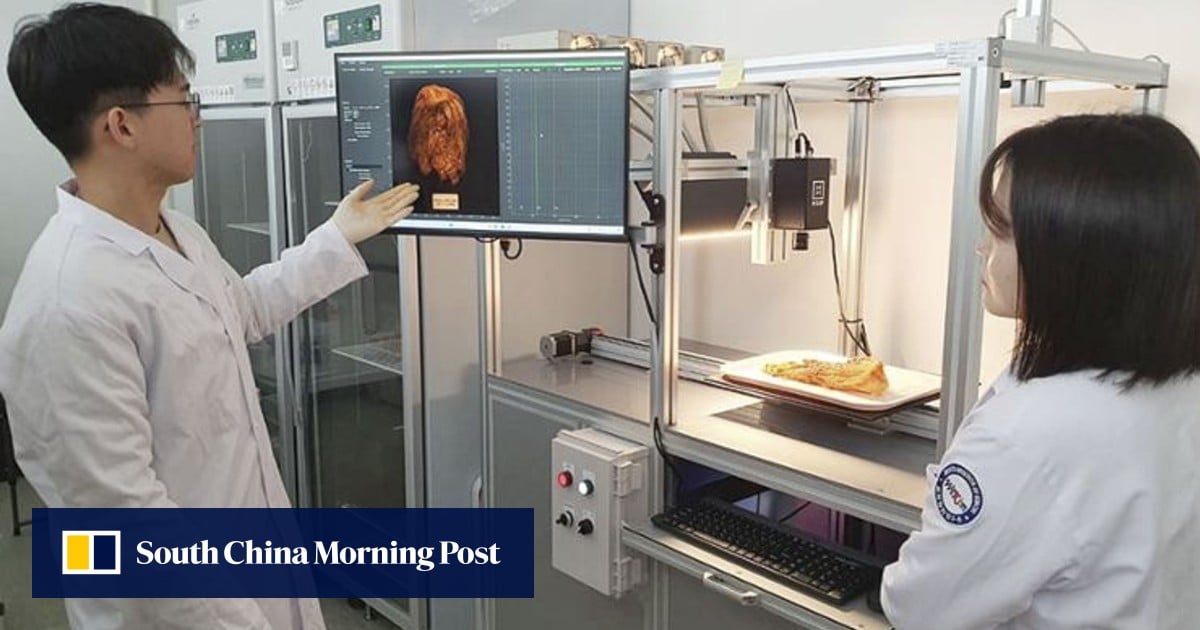Data-powered artificial intelligence (AI) is now utilized to ensure the top-notch quality of mass-produced kimchi for consumers worldwide, as revealed by a government-operated kimchi research facility in South Korea.
This innovative methodology signifies a departure from the conventional technique of fermenting cabbage, which historically relied on manual intervention.
The World Institute of Kimchi (WiKim) unveiled the successful implementation of this technology post a six-month collaborative initiative that concluded in December 2023.
This partnership engaged a local AI developer and a digital education consultancy. The primary goals of the venture were to compile a requisite data set for kimchi quality assessments and to establish an AI model proficient in scrutinizing the amassed data.

Traditionally, kimchi quality control has been human-centric, often subjective and time-consuming. Photo: Shutterstock
In conjunction with data solution provider Catalonix and educational technology service developer SLI (Solution Learning Innovation), both headquartered in Seoul, WiKim effectively compiled an extensive data set.
This data compilation encompassed 270,000 entries of RGB color and hyperspectral images, enabling a meticulous evaluation of food quality at each phase of the kimchi production process.
The consortium harvested this data from diverse stages of kimchi preparation, including cabbage seasoning in brine, ingredient and spicy paste blending, and the fermentation phase.
Leveraging this data set, the AI model can scan and assess images to ascertain the sweetness, saltiness, and fermentation levels at every juncture. These pivotal factors significantly impact the overall caliber of the pickled delicacy.
The amalgamation of the data set and AI model facilitates efficient and precise quality evaluations for kimchi at manufacturing facilities. This encompasses ingredient quality assessments, process blending evaluations, and fermentation stage monitoring.
The system can categorize kimchi based on its attributes, furnishing a holistic quality appraisal of the end product.
“By exclusively parsing the image data set, this technology expedites the inspection of mass-produced kimchi from production to distribution quicker than previous methods, ensuring a consistently elevated quality level,” stated WiKim President Chang Hae-choon.
The AI-powered, non-invasive quality assessment model for kimchi has surmounted prior constraints and enhanced production efficiency.
Chang Hae-choon, President of the World Institute of Kimchi
This advancement is poised to elevate South Korea’s kimchi sector, which has traditionally lacked definitive quality benchmarks.
It has predominantly relied on subjective evaluations by individual producers, primarily grounded on their personal expertise.
Furthermore, the dwindling labor force in the nation, attributed to an aging populace, poses a substantial threat to an industry that has been sluggish in embracing technological innovations and heavily dependent on human judgment for quality assurance.
These challenges are magnified at a time when South Korea’s kimchi products are gaining traction globally due to the international proliferation of Korean culture, spearheaded by K-pop and social media.

Kimchi is gaining popularity abroad, with AI being trialed to expedite mass production and enhance quality control. Photo: AFP
Chang underscored the necessity of addressing the hurdles in kimchi exports, from cultivating raw materials to shipping products overseas. Without more precise and systematic evaluations, ensuring consistent quality for global kimchi consumers would remain a formidable task.
“To maintain a uniformly high quality of exported kimchi, it became imperative to depart from our traditional methods and embrace a fresh, innovative approach,” Chang remarked. “The AI-driven, non-intrusive quality assessment model for kimchi has transcended past limitations and heightened production efficiency.”
WiKim’s achievement under the Ministry of Science and ICT comes on the heels of the National Information Society Agency’s selection of the institute for a national R&D project last year. This initiative aimed to bolster the development of a data set for AI learning.






